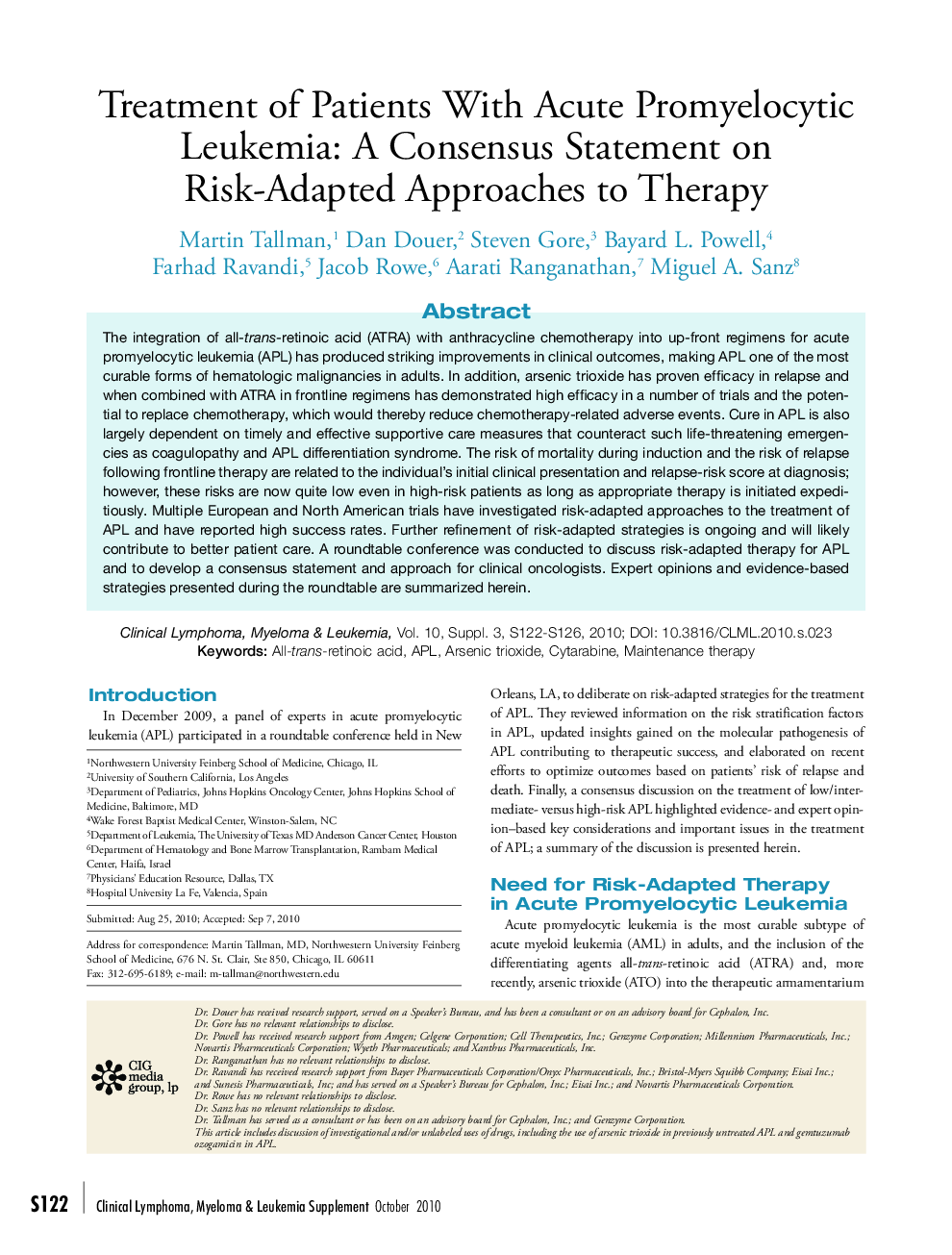| Article ID | Journal | Published Year | Pages | File Type |
|---|---|---|---|---|
| 2755531 | Clinical Lymphoma Myeloma and Leukemia | 2010 | 5 Pages |
The integration of all-trans-retinoic acid (ATRA) with anthracycline chemotherapy into up-front regimens for acute promyelocytic leukemia (APL) has produced striking improvements in clinical outcomes, making APL one of the most curable forms of hematologic malignancies in adults. In addition, arsenic trioxide has proven efficacy in relapse and when combined with ATRA in frontline regimens has demonstrated high efficacy in a number of trials and the potential to replace chemotherapy, which would thereby reduce chemotherapy-related adverse events. Cure in APL is also largely dependent on timely and effective supportive care measures that counteract such life-threatening emergencies as coagulopathy and APL differentiation syndrome. The risk of mortality during induction and the risk of relapse following frontline therapy are related to the individual's initial clinical presentation and relapse-risk score at diagnosis; however, these risks are now quite low even in high-risk patients as long as appropriate therapy is initiated expeditiously. Multiple European and North American trials have investigated risk-adapted approaches to the treatment of APL and have reported high success rates. Further refinement of risk-adapted strategies is ongoing and will likely contribute to better patient care. A roundtable conference was conducted to discuss risk-adapted therapy for APL and to develop a consensus statement and approach for clinical oncologists. Expert opinions and evidence-based strategies presented during the roundtable are summarized herein.
